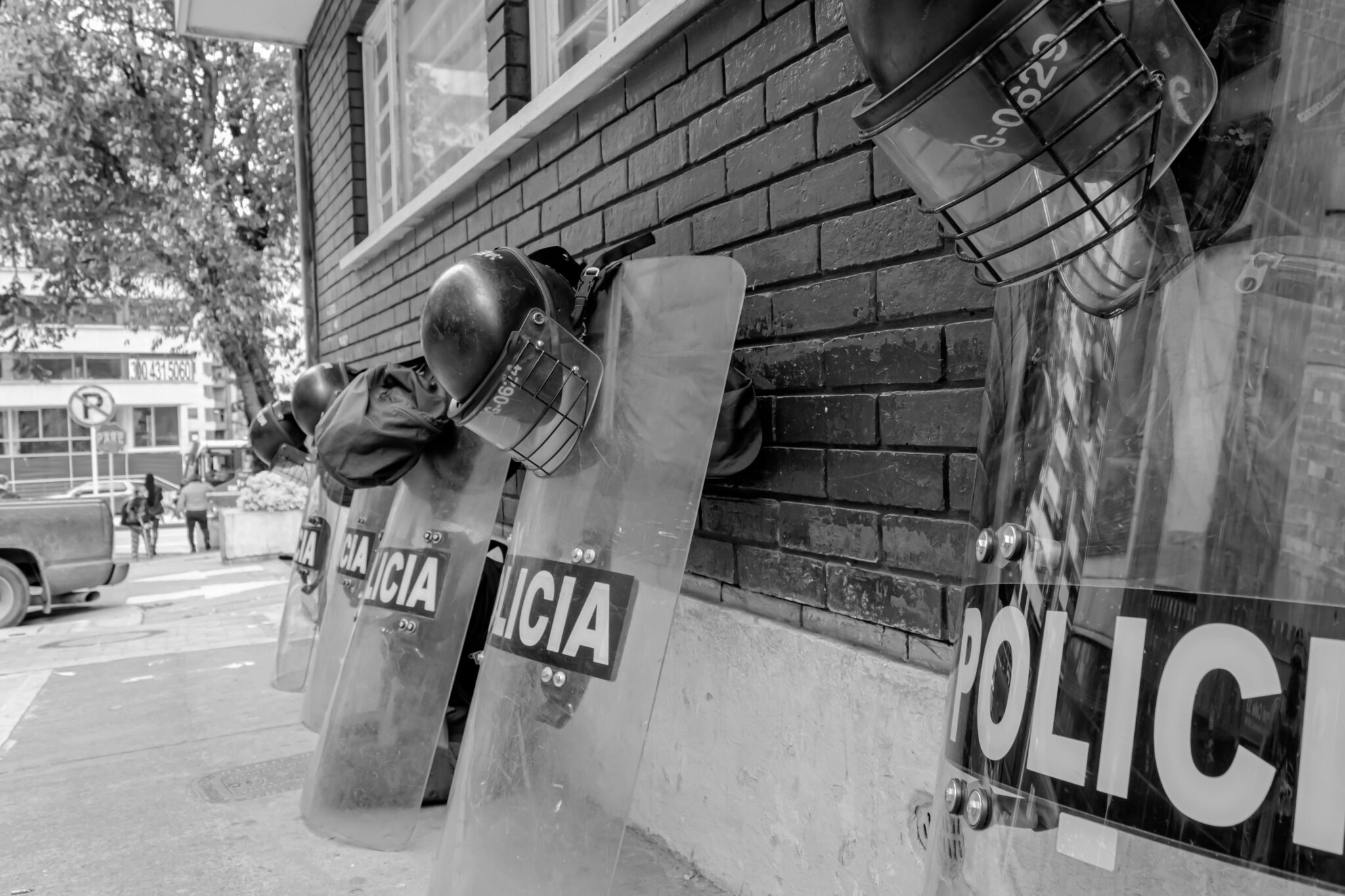Community Policing and Public Trust: A Field Experiment in Colombia

Photo credit: Alejandro Bernal via Adobe Stock Images
Context
Successful law enforcement depends in part on trust between the police officers and citizens, and “community policing” models (which emphasize informal interactions between police and the community) have been put forward as a potential solution. This project studies one such community policing model in Medellín, Colombia. Medelliín has a long history of violence, pressing threats to citizen security, and improving—but still fragile—police-community relations.
Study Design
Working with the police in Medellín, the researchers conducted a randomized controlled trial to understand the impacts of police-community dialogues. 347 neighborhoods across the city were randomly assigned so that half would participate in a three-part series of police-community meetings. Surveys of community members and police officers allowed the researchers to evaluate the impact of these meetings on citizen attitudes toward the police, police perceptions of citizens, and rates of reporting of crimes and of suspicious activity.
Results and Policy Lessons
They find limited evidence that these police–community meetings generally improve citizens’ beliefs about the police. Residents of the 174 neighborhoods randomly assigned to police–community meetings became slightly more likely to say that the police have the capacity to respond to incidents in a timely manner and to investigate crimes, though the effect is small in absolute terms. These residents also became slightly (though not statistically significantly) more likely to say that police have good intentions: that they take cases seriously and treat people fairly. The limited effects of police-community meetings on citizen’s beliefs echo the findings from a set of similar (coordinated) studies of policing.
However, the researchers find no evidence of changes in crime, crime reporting, police abuse, or officer beliefs as a result of the police-community meetings. The researchers note that only very large changes in crime would have been identified given the variability of crime in a given small neighborhood.

